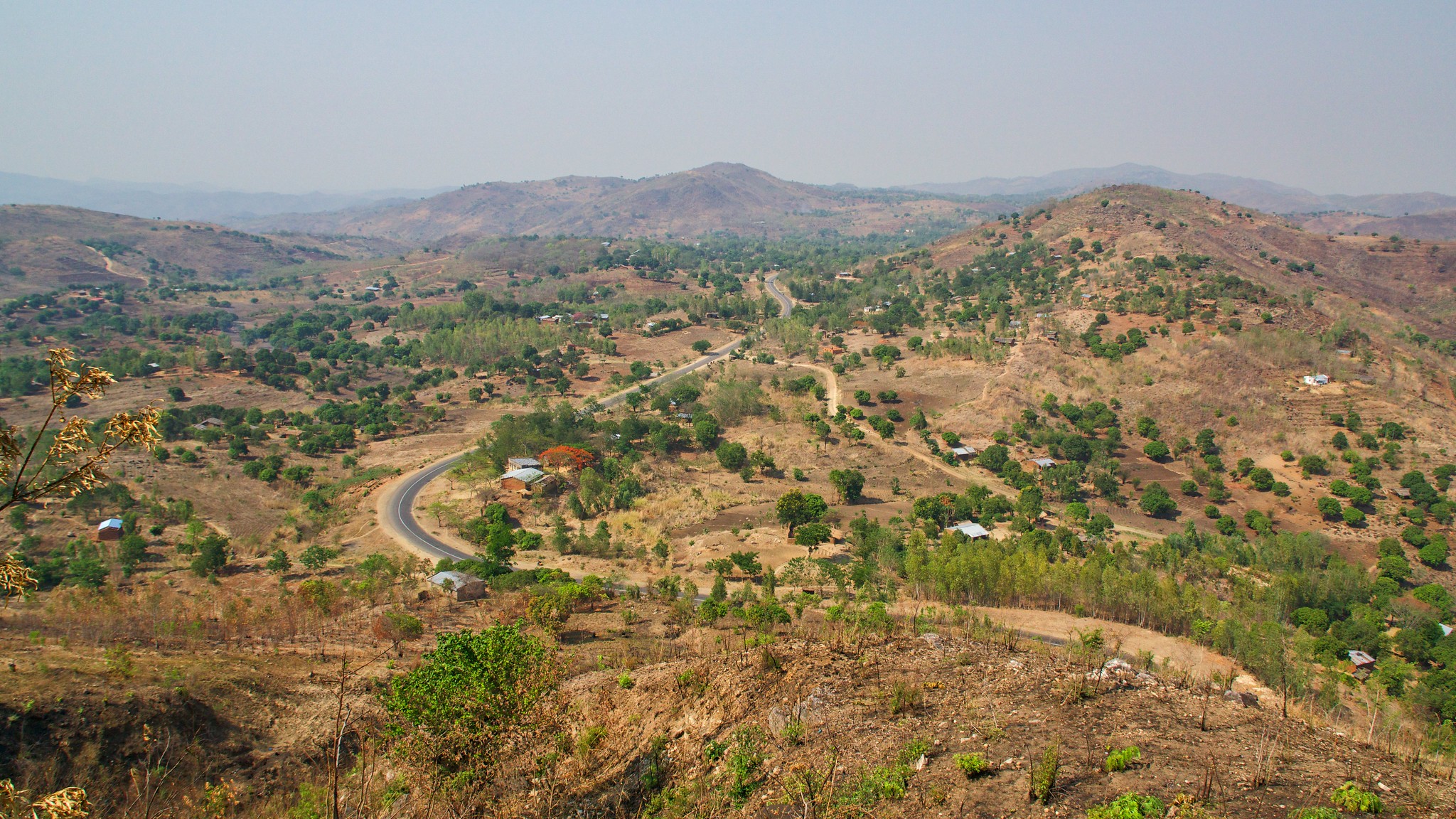Deforestation in Malawi and the Church Communities that are Working to Counter It
by Greta Lapp Klassen; April 27, 2022

In Blantyre, Malawi, the rain is becoming less reliable.
“We used to plant our crops in October,” said Brethren in Christ Bishop and Pastor Francis Kamoto. “Normally we have rain in three months, but you cannot predict it anymore. This year, we planted our crops in January.”
Blantyre is the second largest city in Malawi, located in the Shire Highlands in the southern part of the country. It is Malawi’s main commercial center, with a wide range of industries, from shoe manufacturing to maize milling. There are mountains surrounding the temperate city, making it a popular location for tourists. But the once-lush mountains are more barren than they used to be – the green blanket of trees that once covered them is gone.
“Some people just read about [deforestation] in school,” Kamoto said, “but in Malawi, that is real.”
Blantyre has had a 12% decrease in tree cover since 2000. With fewer trees, more carbon dioxide stays in the atmosphere, contributing to noticeable changes in climate. Decreased tree cover also leads to irregular and heavy rains that lead to flooding and periods of drought.
Indigenous wisdom has long understood that “trees bring rain,” but this idea was rejected and ignored for years by the Europeans who colonized Africa, who scoffed at the idea that rain could be controlled by anything other than wind. Recently however, scientists have realized that this ancient wisdom is true: trees do attract rain, thanks to a process known as the “biotic pump.” When the trees are gone, rain is much less regular; and when it does come, it is heavy and often causes flooding.
The causes behind deforestation in Malawi are multifaceted – much of it happens out of financial need. Many people make a living by cutting down trees and selling the wood and charcoal, two common fuel sources. Saplings are expensive, and the trees that are cut down are usually not replanted, leaving the ecosystem vulnerable.
“We have erosion, we have flooding, the nutrients in the soil are taken away,” Kamoto said. “If we plant crops, they don’t do well because the nutrients have been washed away by the rain.”
The irregular rains, erosion, flooding and loss of arable soil make it significantly harder for the 64% of Malawi’s workforce who work in agriculture to make a living, and so a cycle is perpetuated: the more people who are underemployed, the more trees are cut down to make ends meet, and more the soil suffers, and the harder it becomes to make a living in agriculture. Although many people know deforestation is bad for the earth, they often have no other options.
Before colonization, agriculture in Malawi thrived. Because Sub-Saharan African soils have fewer nutrients and organic matter than European, North American or Asian soils, they are more liable to erosion, and are lower in natural fertility. Native Malawians understood how to successfully take care of the land, and used a shifting cultivation system in which plots of land were left alone for 10 to 15 years, and then cultivated for two to three years. While the land was not being used, trees were grown and then burnt, with their ashes being used to fertilize the soil.
When the British arrived in the late 19th century however, they did away with the traditional ways of land management because they believed it did not suit their interests. Over a century later, the consequences of prioritizing a high yield over the earth are heavily impacting the lives of those who call Malawi home. But Malawians haven’t given up hope that they can reverse the impact of climate change and make life better for future generations.

For Kamoto, taking care of the earth is both a practical and spiritual matter. And he sees planting trees as the best solution.
“If we read Genesis 2:9, [it says] ‘out of the ground the Lord God made to spring every tree that is pleasant to the sight and good for food,’ Kamoto said. “God himself is the first planter.”
The church in Blantyre is working to plant as many trees as they can to counter deforestation, and they are encouraging people to replant the trees they cut down the best they can.
“We thank God that we have many people who are running a business selling saplings,” he said. “We have different types of trees – fruits, exotic trees, indigenous trees – once we have finances, we can do a lot.”
If left alone, the new trees will grow roots that will counteract erosion and flooding, preventing nutrient loss and making farming more viable. Kamoto believes that although the impacts of climate change on a global scale are largely out of their control, they do have the power to make a difference in their own community.
“The world is in our hands. If we leave it the way it is, then our children, our grandchildren – I think they will suffer a lot,” Kamoto said. “We need to take care of the creation God has given us. We can change the world.”

